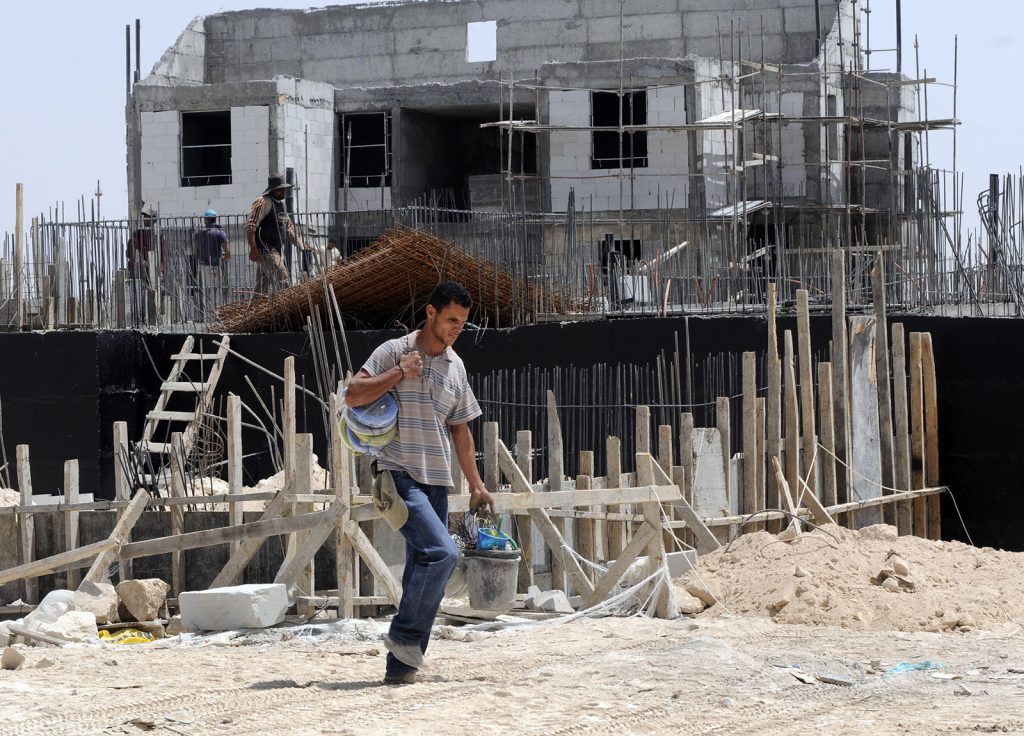Australia/Israel Review
Scribblings: Quantifying the self-harm of “anti-normalisation”
Nov 28, 2022 | Tzvi Fleischer

AIJAC and the AIR have long sought to document the terrible self-harm that Palestinian society has inflicted on itself through an obsession with “anti-normalisation”. This is the view that any Palestinian contact or interaction with Israelis is tantamount to treason to the Palestinian cause, because not only is Israel completely illegitimate, but all Israelis should be treated only as irredeemable enemies.
Hezbollah-supporting Lebanese journalist Lea Azzi explained the ugly logic of anti-normalisation in an ABC interview in 2019. She said it was wrong for Lebanese-Australian doctor Jamal Rifi to be part of an Australian-based charity which operates in Israel to help provide medical aid to Palestinian children, because doing so amounts to “normalising the relationship with Israel. So the enemy becomes a human.”
In addition to the anti-normalisation attempt to prevent medical aid to Palestinian children in that case, here are a few other examples illustrating how “anti-normalisation” fanaticism has hurt Palestinians without achieving anything for the Palestinian “cause”:
- In 2019, the two leading Palestinian software companies were driven off the campus of Birzeit University by anti-normalisation activists who charged that these purely Palestinian companies did business with Israeli technology firms. The companies had wanted to participate in a careers day and possibly hire students.
- Palestinian American millionaire Bashar al-Masri was attacked by anti-normalisation activists over his efforts to construct Rawabi, the first planned city in the West Bank built by and for Palestinians, north of Ramallah. His “offence” was to work with Israeli officials to obtain essential basic services and supplies for Rawabi, such as water, electricity and cement – things that most other Palestinians also obtain from Israel.
- In 2020, the Palestinian Authority rejected a shipment of medical supplies sent from the UAE to help with the COVID emergency because it was flown in via Israel and this was described as encouraging “normalisation”.
- Also in 2020, a PA body invited a group of Israeli journalists to Ramallah to try to explain the Palestinian case to them, and through them to the Israeli public. This may seem a sensible thing to do, but when news of this came out, protesters took to the streets in Ramallah; students at Birzeit University held a sit-in over the participation of a member of the university’s board of trustees in the meetings; and Molotov cocktails were thrown at the Ramallah restaurant where a meeting had been held.
I could go on, but hopefully readers get the picture.
As the final example above illustrates, the Palestinian Authority is in a strange position in the anti-normalisation campaign. Publicly, it fully supports and verbally calls for it. For example, in late October, Fatah Central Committee Secretary Jibril Rajoub commented on an exhibition of Palestinian products in remarks broadcast on official PA TV, saying that he hoped the exhibition would be “be part of a heightened and comprehensive effort… to … create an awareness for distancing and boycotting the Israeli products.”
The PA has also arrested Palestinians accused of normalisation when there is a public outcry from activists, and promotes anti-normalisation education in schools. Yet it also engages in diplomatic contact with Israel’s political leaders, and there is considerable security cooperation with Israeli forces – which is actually critical for the PA’s survival in the face of threats from radical rivals like Hamas.
But, more than this, the PA does not really seek to create a complete boycott of Israelis and Israeli products because actually doing so would be economically catastrophic.
It is estimated some 200,000 Palestinians cross into Israel or Israeli settlements for work every day, earning more than twice as much on average as Palestinians employed in PA-controlled towns. These workers provide a huge chunk of the Palestinian GDP.
Moreover, Palestinian Media Watch has looked at PA Central Bureau of Statistics (PCBS) statistics on trade – which show that if the anti-normalisation campaign achieved its goals, the Palestinian economy would basically cease to exist.
In August of this year, 56% of all goods imported into the PA were Israeli goods.
Moreover, no less than 91% of all goods exported by the PA that month were sold to Israelis or Israeli companies.
Boycotting all contact with Israel, as anti-normalisation activists demand, would thus actually be the ultimate act of self-harm imaginable – costing the PA economy the huge portion of its GDP that comes from workers employed in Israel, more than half its imports and almost all its exports.
Yet this is what both Palestinian civil society groups and the PA itself ostensibly advocate. It’s a fantasy as completely divorced from reality as the oft-heard Palestinian prediction that all of Israel’s Jews will one day be convinced to return to the countries they, or their ancestors, came from.
Tags: anti-normalisation, Israel, Palestinians






